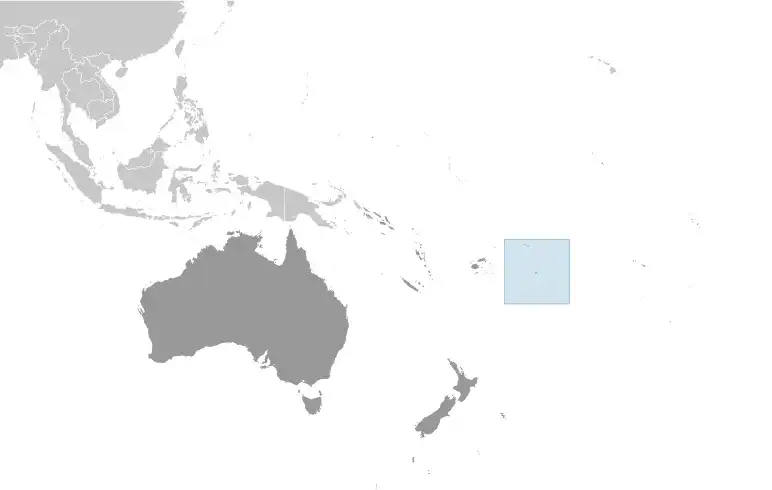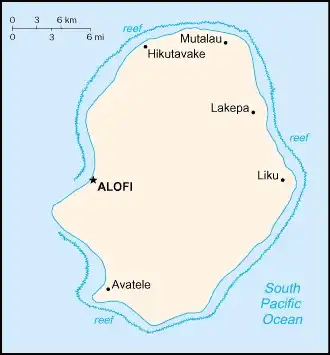
Niue Country Profile
Key Facts of Niue

| Government type: | parliamentary democracy |
| Capital: | Alofi |
| Languages: | Niuean 46% (official, a Polynesian language closely related to Tongan and Samoan), Niuean and English 32%, English (official) 11%, Niuean and others 5%, other 6% (2011 est.) |
Niue Demographic Data
Ethnic Groups in Niue(2017 est.)
Religious Groups in Niue (2017 est.)
Niue Economy Statistics
Economic overview of Niue
upper-middle-income self-governing New Zealand territorial economy; environmentally fragile; massive emigration; post-pandemic tourism rebound; postage stamps, small-scale agricultural processing, and subsistence farming; most recent Asian Development Bank member
Niue Real GDP (purchasing power parity) in Billion $
Niue Real GDP per capita in $
Niue's Exports & Imports in million $
Top 5 Import Partnerin 2022 (98%) of Niue
Top 5 Import Commodities in 2022 of Niue
- iron structures 🛠️
- ships 🚢
- refined petroleum ⛽
- plastic products ♻️
- cars 🚗
Top 5 Export Partnerin 2022 (79%) of Niue
Top 5 Export Commodities in 2022 of Niue
- broadcasting equipment 📡
- abrasive powder 🧂
- collector's items
- coin 🪙
- milling stones 🪨
Geography of Niue
Map of Niue

Land and Water Distrubtion of Niue
Natural Resources of Niue
- arable land 🌱
- fish 🐟
Climate inNiue
tropical; modified by southeast trade winds
History of Niue - a Summary
Voyagers from Samoa first settled on Niue around A.D. 900, and a second main group of settlers came from Tonga around 1500. With only one reliable source of fresh water, conflict was high on the island. Samoan and Tongan customs heavily influenced Niuean culture, including the formation of an island-wide elected kingship system in the early 1700s. In 1774, British explorer James COOK landed on the island and named it Savage Island because of the Niueans' hostility. Missionaries arrived in 1830 but were also largely unsuccessful at staying on the island until 1846, when a Niuean trained as a Samoan missionary returned to the island and provided a space from which the missionaries could work. In addition to converting the population, the missionaries worked to stop the violent conflicts and helped establish the first parliament in 1849.
Great Britain established a protectorate over Niue in 1900. The following year, Niue was annexed to New Zealand and included as part of the Cook Islands. Niue’s remoteness and cultural and linguistic differences with the Cook Islands led New Zealand to separate Niue into its own administration in 1904. The island became internally self-governing in 1974; it is an independent member of international organizations but is in free association with New Zealand, which is responsible for defense and foreign affairs. In September 2023, the US recognized Niue as a sovereign and independent state.
